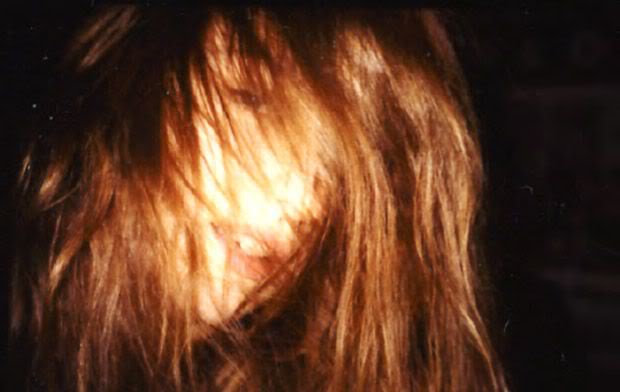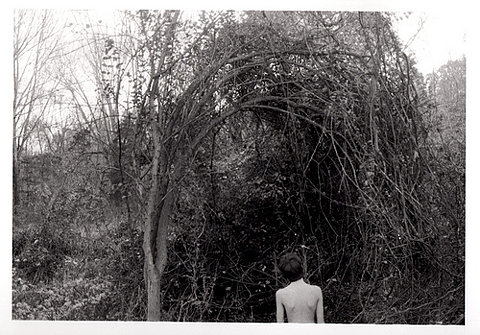Notes on a talk by Michael Stone at Centre of Gravity, March 18, 2013
Meditation
In meditation practice it can be helpful to consider two realms: mindfulness and self-consciousness. Sometimes they can get confused, it can be hard to distinguish between the two of them. Mindfulness practice can make you very self-conscious. Someone might say: I’m aware of my emotions all the time, I’m very aware of all my bodily movements – isn’t that what being mindful means? Well, not exactly. Because this is viewing experience through the filter of my self-consciousness. All experience becomes self referential. It can be hard not to do this. If you’re saying to yourself, “I feel this.” “Why is my mind so busy?” “My knee hurts.” That is not mindfulness. How to be aware of thoughts and images and feelings arising in awareness? Nothing arises in your consciousness. Consciousness itself is an experience. How to stop living your life from the standpoint of a “me?”
All day long people say to me, “Hi Michael.” “Hi Michael.” Until I start to feel like a Michael. So when I see what is moving through awareness it’s hard not to relate it to a Michael. Perhaps you can check out during sitting practice if you’re filtering experience through self-consciousness. If we’re practicing mindfulness there’s not much commentary happening, there’s not so much referring back to a “me.” Dogen said it this way: “When you sit, just think not-thinking.”
Shantideva
Here’s Michael’s translation of chapter five, verse 80 onwards.
When I see or meet someone
I’ll say to myself:
“Through my meeting with you
I will wake up.”
With this internal slogan
I will meet each person with an open heart.
Anyways, meeting each situation is my deepest aspiration,
If I work in the field of loving others,
Great virtues will come about for all of us.
Sometimes I love too much
And sometimes I don’t meet others
With my whole body.
Sometimes I only meet others with memory.
But that’s not the kind of love that’s possible
My capacity to love does not depend on anyone else
But it also requires everyone else.
Practicing generosity beyond generosity
Is instinctual
though I need to continually attune myself to what
Is beneficial for others.
Sometimes to really help someone I have to say or do things
That seems questionable or don’t meet
A reified ethical code. Still,
I carefully think this through
Because Bodhisattvas think things through
In the relative realm.
Some people don’t have enough food
Some not enough protection
So I give away what I don’t need.
I take what I need to nourish life.
My body is used for the dharma
Because my body is a vehicle of the dharma.
My body can hold love
And love holds my body.
For this reason,
I should not take my own life.
You should not either.
You should consider how suicide will affect yourself
And also others.
It’s not a sin to take your own life,
Sometimes there’s no will to live.
But even if you are in the worst pain,
Your body can be used in some beneficial way
That you just can’t see right now.
If someone is disrespectful don’t try to teach him or her.
Don’t explain the dharma to someone with a weapon.
The dharma is not something you explain.
When I spit or throw away my dental stick
I should cover it up with earth.
I will not urinate on land or water used by others.
When eating I will not overstuff myself
I will chew quietly
I should not give directions with one finger
Instead I should point with my whole hand
With my fingers fully outstretched
I will point directions with my whole arm.
I don’t need to wildly throw my arms around to make a point.
If I need to accentuate or emphasize a word,
I should snap my fingers.
Just as the Buddha lay down to die
I will lie down to sleep, and when I wake
I will make a firm decision to get up.
I will always try and put my practice
Into practice.
I will never abandon my friends.
I will study texts for guidance.
When I read a text and something penetrates me
I should figure out how to
Put that into practice.
Practice is action.
Action born of practice guards the mind of my community.
The defining characteristic of practice is
Examining again and again
The condition of my body and mind
And guarding mindfulness I become alert and unrehearsed.
How can I put this to work in my life
Without practice? How can you?
For what can be achieved just by thinking alone?
Will the sick receive benefit from
Merely reading the medical texts?
Bodhicitta
Bodhi means to be awake. And citta is usually translated as consciousness, but it’s better understood as the part of your mind that is like wet clay; it’s impressionable. Some impressions are small, they come and pass away. Other impressions are very deep. Bodhicitta is the inspiration that fills your heart, it’s the wind you catch that leads you to do things for others. What is the practice? It is to care for all sentient beings. It implies compassion. Absolute bodhicitta is absolute love, a love so big that there is no lover and no loving. It comes from the place of mindfulness, not self-consciousness. This is the nexus of every religion. 100% bodhicitta is the empty, joyful, spacious sense of life at its depth. It’s always been here. In our narrowness we can convince ourselves that it’s not here. But it’s here in this room, it’s you, it’s in your face. Everything will always be held by this spaciousness. Imagine that your practice is deep enough so that even when you are in deep sorrow you feel how you are held.
Shadow
When I was young I went to a monastic community where people held up bodhicitta as the greatest virtue. They asked me, “Why choose one lover when you can love everyone equally?” I thought, “Are you joking? It’s much harder to love one person. To have conditional love.” The shadow of absolute love is living in love’s ivory tower.
The other kind of bodhicitta is conditioned. This is “hard work” bodhicitta. This kind of love can harden us and even hurt us. You can love all things, yes. But maybe it’s harder to have conditioned love because loving only a few people is tough. With 100% love there is no effort but with conditioned love there is lots. Love is an endless job. It takes your whole life. Endless caring.
Kids
When we’re kids our parents can meet our needs with their boundless giving, their 100% bodhicitta. They change diapers, and prepare food. But when we’re adults, lovers won’t meet needs in the way our parents did. There’s a gap. And sometimes when we’re kids, parents aren’t tuned into what we need, so we experience scarcity where our needs are not being met. We have to take care of that place of scarcity, we have to soothe ourselves.
Frustration
We are always negotiating frustration. I watch this again and again in my son. We need to be met. But not too soon and not in too distant a time. Our parents organize their lives around our needs. But as we grow up we realize there is scarcity, a limit to the meeting of one’s needs. On the one hand it’s important that someone really cares about what you need, but as an adult you realize you will never have that kind of intimacy with another adult. So we need to negotiate frustration. That’s where mindfulness can come in. You can see your needs and also where they can’t get met. You soothe yourself. This is what you can do in meditation practice, you soothe yourself. In psychology this is called affect regulation.
Adam Phillips
“What we’re continuously being sold is possibilities for pleasure. One way or another. As though all we want to do is get rid of the pain and increase the pleasure. I think this is a very impoverished view of what a life is, even though every life must involve trying to do something with the pain, and having the pleasure. There’s a difference between evacuating pain and frustration, and modifying it. And what we’re starved of now is frustration. That there isn’t a really powerful account of the value of the state of frustration. It’s as though we’re phobic of frustration, so the moment there is a feeling of frustration it’s got to be filled with something. It’s a bit like the mother who overfeeds her child. She does that to stop the child from having appetite because the appetite is so frightening. Now it seems to me there’s an attempt to foreclose appetite. And that means foreclose people’s capacity for what is really missing in their lives, what they might want, and what they might do about getting it.”
Scarce
Everything about your sense of self hangs on how you manage scarcity. Or: do you fall for people who keep you in scarcity? Like your preoccupied parents? It can be hard not to fall into the same grooves, they have a gravity to them. Or do we blame out, project it all onto the other person and become angry? When we use language we talk, and in talking we want something back. We want to say something and have it heard and then modified. I have stories about who I am. There is an anxiety about having those stories unpacked. But we are motivated to unpack those stories. We recycle ourselves through conversation. Try on different selves, work old grooves. Even conversations with ourselves.
Koan
A koan is a teaching device. I don’t teach formal Zen koans because I’m not authorized to do so and because I’m working them out for myself. But I use them as parables or meditation techniques to push us along.
Elder Ting asked Lin-chi, “Master, what is the great meaning of Buddha’s teachings?”
Lin-chi came down from his seat, slapped Ting and pushed him away.
Ting was stunned and stood motionless.
A monk nearby said, “Elder Ting, why do you not bow?”
At that moment Ting realized great enlightenment.
Like so many koans it uses the familiar trope of a seeker asking a question – but it’s intellectual, there’s no heart in it. It’s not about his life. So anything Lin-chi would say would add nothing to nothing. In Zen there is a saying, “They’d have a conversation in the weeds.” Elder Ting is caught in duality. There is the one who knows and the one who doesn’t know. But another monk intervenes, he changes Ting’s point of view, that wasn’t a slap, it was a teaching. There aren’t two positions, there are three. And then Ting puts his whole body into his bow. He was frozen, but now he is moving. And this movement is the gesture of his awakening. Proof and realization.
Dying
This koan is from The Blue Cliff Record, a collection of 100 koans. The footnote says: “When someone dies in the Eastern House, The people in the Western house help them mourn.” When “someone dies” means to let go of the narrow self. Kill the Buddha when you meet him. Let the real Buddha arise in you? There is nothing needed. Be aware of that AND the small self that needs.
Or: the person in the western house has a part of themselves that they have to let go of. Part of them has to die. How can this person be met? Often therapists are too scared, they’ve signed their Contract for Safety and are too bound by making literal what is deeper and metaphorical. One part of us has to die, the other has to grieve. Buddhist practice is an elegy for the fact that we are not special. We are original, but we are not special.






